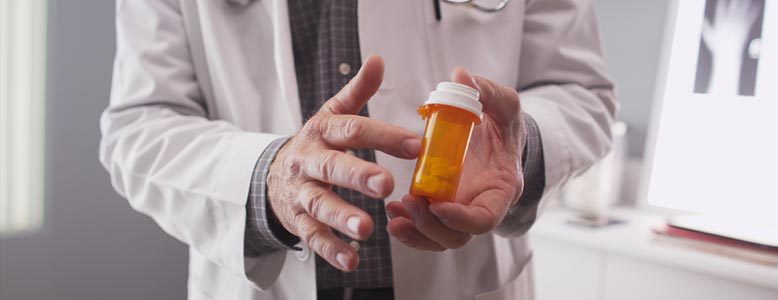MRI safety considerations
There are a number of safety considerations that need to be assessed prior to having an MRI. Please contact Queensland X-Ray to ensure that you are eligible to have an MRI. Please advise Dr Swindle, the Radiologist and the MRI technician if you have:
- Pacemaker
- Cerebral aneurysm clips
- Cochlear implants
- Surgically implanted medical devices
Medications
You are usually able to continue taking your prescribed medications during the course of your surgical procedure however it may however be necessary to cease some medications. Be sure to bring all medications that you are currently taking with you to the hospital, including inhalers and sprays, in their labelled containers. Please advise Dr Swindle and your anaesthetist who will discuss with you which of these medicines you should take on the day of surgery and which may need to be avoided.
Many medications can thin the blood and cause excessive bleeding during surgical procedures. It is very important that you cease any blood thinning medications 7-10 days prior to some surgical procedures. However, do not cease any of these medications without discussion with Dr Swindle.
Generally, anti-coagulant medications should be ceased 5 days before the surgical procedure (and you may need to start on other medications when you’re not taking these). A blood test should be performed on the morning of the procedure to ensure that the blood is clotting appropriately. The medications should not be resumed until 1-2 weeks after the surgical procedure but Dr Swindle will discuss the exact timing of restarting these medications with you.
You should stop taking all natural therapy preparations as these may interfere with the clotting ability of the blood.
Please ensure Dr Swindle is aware of all drugs, pills and medications that you take, whether on prescription or not, even if they are not on the list of medications to avoid.

Potential side effects
There are a number of potential complications from an MRI Guided prostate biopsy procedure. The vast majority of patients have no problems at all but it is important that you understand what may potentially happen.
Urethral bleeding
Most men do pass a small amount of blood in their urine or leak blood from the penis after the procedure. This is an expected occurrence after the procedure. This should settle within 24-48 hours.
Rectal Bleeding
Most men pass a small amount of blood in the first one or two bowel motions after the procedure. This is an expected occurrence after the procedure. This should settle within 24-48 hours.
Haematospermia
Blood in the semen or dark staining of the semen can persist for up to 3 months after the procedure. This is an expected occurrence and nothing to be concerned about. Sexual activity can continue as normal.
Sepsis
This is a severe form of infection and is otherwise known as blood poisoning. This occurs in 1 in 100-200 patients. The symptoms consist of fevers, chills, shaking, lethargy, warm skin, shortness of breath, rapid heartbeat, drowsiness and a general feeling of being unwell.
Urinary retention
Occasionally patients may have difficulty passing urine after the procedure. This usually happens in older men or men with extremely large prostates. The symptoms consist of difficulty urinating, abdominal pain, poor flow or frequent urination.
Urinary tract infection
Infection of the urine, prostate or testicles can occur after the procedure and can cause symptoms of difficulty urinating, burning on urination, frequent urination, swollen testicles or fevers.
Pain
You may experience mild pelvic discomfort within 24 hours of the biopsy. Panadol, Panadeine or Digesic are usually all that is required. If you require stronger pain relief you will need to contact Dr Swindle.
Erectile difficulties
Rarely patients have described difficulties in gaining erections after a prostate biopsy. This is very rare and usually occurs in men who have a positive diagnosis and is often related to anxiety.



